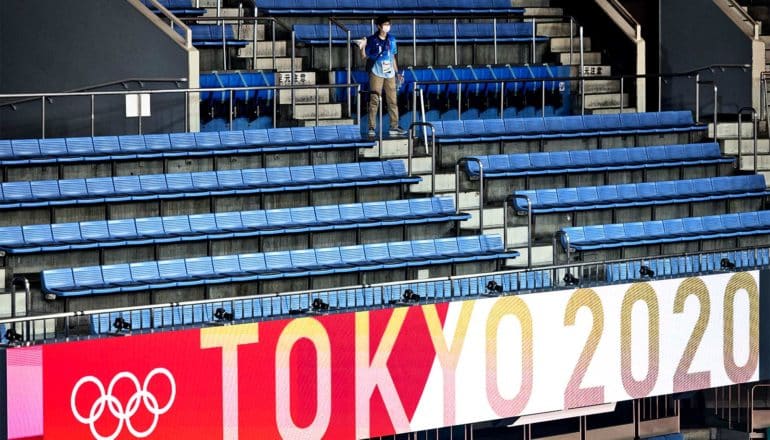
The 2020 Summer Olympics in Tokyo have had one notable absence: spectators.
The decision to go on with the Games but to forbid fans was announced by organizers earlier this month as a resurgence of COVID-19 prompted Japan to declare a state of emergency in the capital city.
The 11th hour shift in policy will deny Tokyo the colorful fanfare typically seen in Olympic host cities and cost organizers an estimated $800 million in ticket revenues. But how will it affect the more than 11,000 athletes expected to compete in these Games, which were already delayed for a year by the coronavirus pandemic? What impact will the empty venues have on their performance at what for many will be the most significant moment of their athletic careers?
Vikram Chib is an associate professor in Johns Hopkins University’s biomedical engineering department whose research looks at how motivation—a stadium packed with cheering spectators, for example—drives motor actions and performance. His past work has looked at the brain science behind athletes choking under pressure, and also how having an audience can make you perform better.
Here, he digs into what to expect from athletes at the Tokyo Olympics and his current research, which is looking at where intrinsic motivation comes from:
The post Will Olympic athletes perform worse without fans in the stands? appeared first on Futurity.
from Futurity https://ift.tt/3zKpjv5
No comments:
Post a Comment